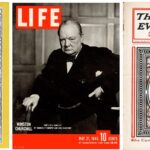In honor of yesterday’s inauguration, I thought I would put a link to the new Jib Jab video. You might remember the cartoon video they made during the campaign, to the tune of “This Land is Your Land.” The new one is just as funny; it’s about the inauguration and the second term.
Speaking of the second term. It seems that privatization of Social Security is going to be high on the agenda. I have many concerns about this. I like what Prairie Weather had to say about this recently. Check out the entire post. Here is a particularly good point: “… we live in a society which claims to be of the people, by the people, for the people. The “government monopoly” you speak of is the people’s monopoly over their own fund. How would I like to see my retirement insured? Given today’s business climate, I’m damned if I think “competing fund managers” are more competent or trustworthy than I am — remember please that I and my fellow citizens are the ones in charge of our Social Security accounts right now … require Congress to “respect individuals’ autonomy and competence” by leaving our insurance benefits alone, please.”
In other news today, I just read that FCC chairman Michael Powell is to announce his retirement today. According to a story in the New York Times, Powell had planned for some time to leave after Bush’s first term. To those concerned with media issues, Powell has been a rather controversial leader.
“Mr. Powell, a Republican, brought an emphasis on deregulation to the commission. The most contentious issue of his term came with his proposal to relax the rules limiting how many media outlets one company could own in any given city,” writes Stephen Labaton of the New York Times. “The change was supported by big broadcasting and publishing companies and vigorously opposed by a coalition of smaller broadcasters and labor, consumer and civil rights organizations. It passed in June 2003 along a party-line vote, but was blocked last year by a court that said the commission had failed to justify the ruling.”
Powell was also known for imposing fines to broadcasters following the Janet Jackson Super Bowl incident–leading some to call him the “most heavy-handed enforcer of speech restrictions in decades.” Conservatives criticized him for not taking the fines even further, writes the Times, while other business leaders (conservatives) criticized him for making broadcasters hold to standards that sattelite and cable broadcasters did not have to meet.





